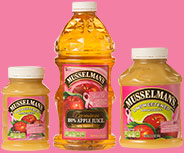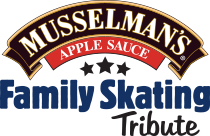What Does That Mean? The History of Apple Expressions
Apples show up everywhere — at farmers markets, on our dinner tables, and in our favorite apple sauce. They’re also part of our folklore (think Snow White) and are engrained in our everyday conversations (“An apple a day keeps the doctor away”) to convey meaning about common life scenarios. What are your favorite apple expressions?
For fun, here’s a look at few of them, where they come from, and what they mean. Enjoy this “food for thought” with the whole family!
In apple-pie order
Maybe you tell your kids, “Put your room in apple-pie order,” or your parents told you, “We want this house in apple-pie order.” Whatever the case, you’ve likely heard it, and wondered: What does apple pie have to do with order?
Some say the phrase came from Scotland and England, and was used regularly in colonial New England, where women undertook a tedious, structured process for baking apple pie: slice the apples ever like so, fill the pie pans row after row, cut the dough and then layer it in straight, and double-check that all lines up, well, perfectly.
The apple of my eye
This one goes way back, used by Shakespeare in A Midsummer Night’s Dream (1590) and showing up in the 1611 version of the King James Bible. Many say it first appeared in the ninth century, when the pupil of the eye (thought to be a round object) was often called an apple. At that time — and when King Alfred the Great of Wessex first used it, in the year 885 — the phrase “apple of my eye” literally meant “pupil.”
Later, it morphed into meaning someone (or something) cherished above all others, like “Jenny is the apple of my eye.” In 1973, the rock band Badfinger released a song called “Apple of My Eye,” using the idiom to describe their cherished relationship with the record label founded by the Beatles, Apple Records.
Apple polisher
We all know a good apple polisher: someone who pampers and flatters less out of good will than for personal gain. Think Eddie Haskell in “Leave it to Beaver” and Nelly Olsen in “Little House on the Prairie.”
Where does the phrase come from? It stems from the custom of school children bringing shiny apples to their teachers as gifts, hoping for something in return — a good grade, a lighter load, or an easier time in class. In some schools, the practice became so commonplace that warnings were issued to “keep away from the apple polishers.” Take, for instance, this article from the 1930s, published in Utah’s Ogden Standard Examiner, in which the author refers to apple polishers as “public enemy No. 1” — and warns all others to “beware of the false flatters of those specimens of humanity who are practicing that art.”
Know any good apple expressions? Or hear one but have no clue what it means? Share them with us on Facebook, and don’t forget to submit your weekly entry to our Musselman’s Apple Sauce Celebrate Family Sweepstakes — you might win a $100 gift certificate to Amazon!





